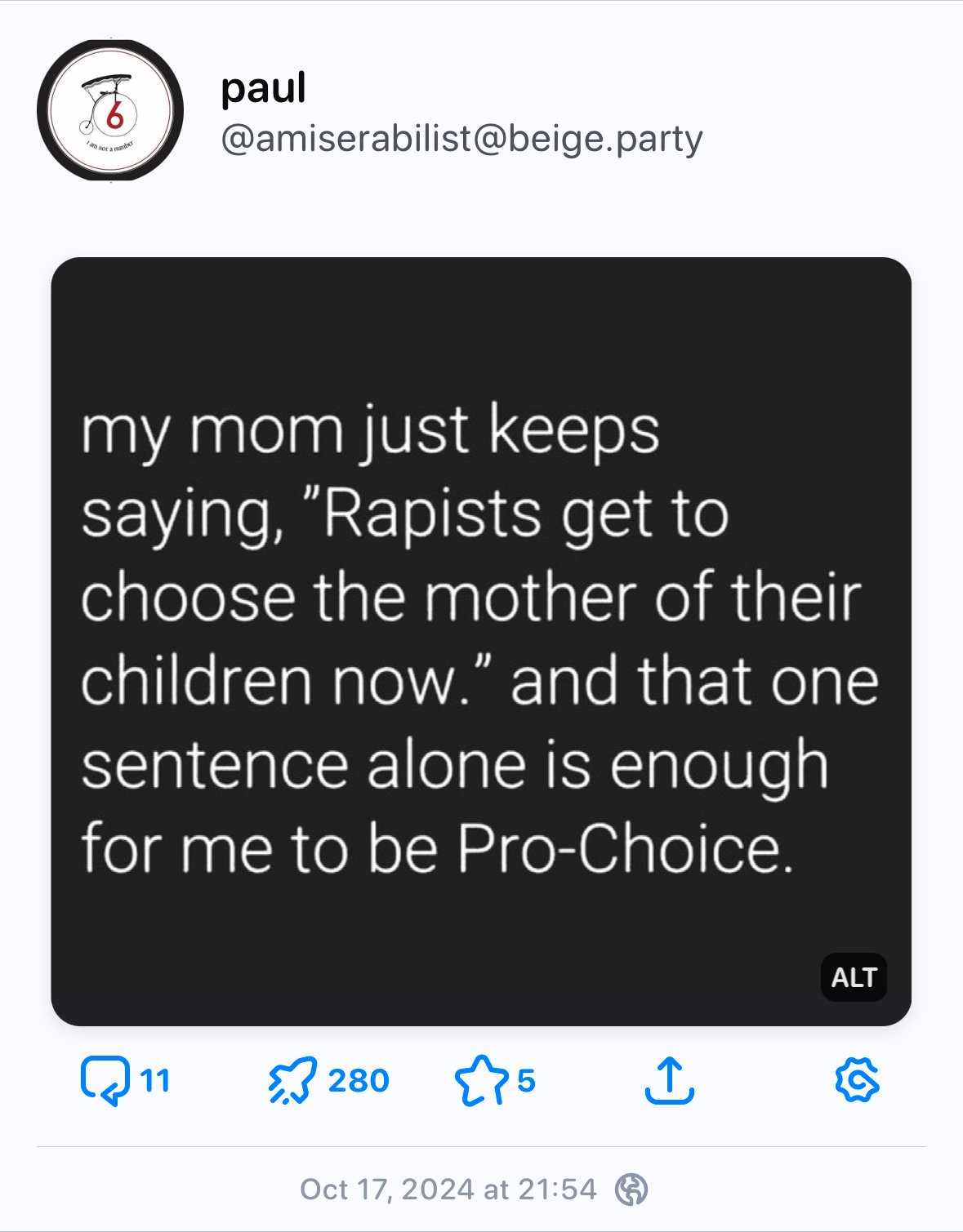this post was submitted on 20 Oct 2024
1234 points (99.1% liked)
Political Memes
5515 readers
1145 users here now
Welcome to politcal memes!
These are our rules:
Be civil
Jokes are okay, but don’t intentionally harass or disturb any member of our community. Sexism, racism and bigotry are not allowed. Good faith argumentation only. No posts discouraging people to vote or shaming people for voting.
No misinformation
Don’t post any intentional misinformation. When asked by mods, provide sources for any claims you make.
Posts should be memes
Random pictures do not qualify as memes. Relevance to politics is required.
No bots, spam or self-promotion
Follow instance rules, ask for your bot to be allowed on this community.
founded 1 year ago
MODERATORS
you are viewing a single comment's thread
view the rest of the comments
view the rest of the comments

It's hard to tell from the data because broad strokes would say rape was at around 42.8 per 100,000 people in 1992 decreased over time to 27.1 until 2013 when the definition of rape was changed and the number jumped that year to 36.4 trending upwards to 44.8 in 2018.
So the questions to me are really, did rapes continue to decrease and reporting became more prominent from things like the me too movement which did start prior to the 2018 peak? Is there less unwarranted shame/sense of guilt felt now so more people are comfortable admitting it? Also... If there was a 9.3 jump when the definition changed, would that not mean if that one could argue 2022 would be around 30.7 by the old definition, and therefore rates have fallen 25% from 1990 till today?
Source I used for numerical values: https://www.statista.com/statistics/191226/reported-forcible-rape-rate-in-the-us-since-1990/